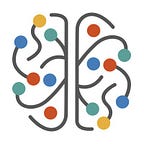Monitoring addiction with Machine Learning
Welcome to Future Health, your weekly update on the impact of AI in Health, Sport and Life Sciences.
Approximately 240 million people are dependent on alcohol and over a billion are addicted to smoking (the largest affliction by some way). Alcohol alone causes an estimated 257 disability‐adjusted life years lost per 100,000 population and tobacco addictions results in an estimated 11% of deaths in males and 6% of deaths in females each year. The numbers are staggering.
Causes for addiction are complex (genetic + environmental) and managing it is notoriously difficult. Understanding the condition through rigorous data collection and analysis however is the first step to a comprehensive treatment programme — read how Akshaya Shanmugam’s Lumme Labs is doing just this.
In this week’s issue we also cover:
- Google’s AI for good in Thailand tackling diabetes
- NHS partner Babylon Health’s response to cutting Forbes article
- Wearables startup’s novel approach to addition treatment
Product News
Startup harnesses wearables to fight addiction
Lumme Labs’ first product, an app designed to help beat addiction, uses smartphones paired with smartwatches to detect and predict behaviour and deliver personalised interventions via alerts that leverage behavioural psychology to help curb and manage cravings. The company is looking to drastically alter the big picture of healthcare in the long run, they aim to overhaul the traditional model which relies on annual medical checkups to catch major health issues, in favour of a continuously monitoring model that uses wearables to provide a more holistic and immediate picture of each patients health.
Diagnostics Research
Google launches AI based Diabetic Eye-Screening Programme
As part of it’s programme of AI for good in Asia, Google has launched a research pilot using AI to detect diabetic retinopathy in Thailand, in partnership with the state-run Rajavithi Hospital. In Thailand there are only ~1,400 eye doctors for approximately five million diabetics, time saving software will have huge impact.
This pilot follows a joint study (between Alphabet Inc. and the Thai Government) that developed an algorithm with a detection accuracy rate of 95%, compared with 74% from opticians or eye doctors.
Credit: Google
CognitionX Research
Ethics in AI: explore the risks and opportunities facing business, society, legislators and regulators.
£395+VAT for one licence. £1995 for 10.
Dispelling Delusions
NHS Partner Babylon Health hits back against its critics
Babylon Health, the virtual AI health consultation platform which partnered with the NHS in 2017, has recently come under fire, as detailed in Forbes this week. Babylon retaliated to the Forbes article saying that they had “used a distorted lens to magnify the views of a few anonymous individuals whilst ignoring the findings from multiple government regulators”, whilst also rebuking the claim that the health service was aiming to replace the advice of doctors. Babylon’s health Bot has been proven to identify ailments accurately 80% of the time, and is backed by NHS England who said of the service that “each safety case meets the standards required by the NHS and has been completed using a robust assessment methodology”.
Funding
K Health raises $25M, Announces its Plans to add Virtual Visits to its AI Platform
K Health closed their series B with $25M in funding. The AI-powered mobile app gives consumers a clear and understandable presentation of their current condition, using a dataset comprised of physician notes, lab results, treatments, and prescriptions. The AI also provides examples of how their health issue has been diagnosed and treated in the past, giving users insight into the true severity of their health issue. The app, which can already link users to traditional healthcare providers, now seeks to further reduce the time users need to spend with a physical (and costly) consultant, by providing a virtual alternative.
Reports
McKinsey Report: “Machine learning and therapeutics 2.0: Avoiding hype, realizing potential”
Read McKinsey’s analysis of the “Six levers” they believe can help healthcare and pharma players achieve better outcomes when using machine learning.
